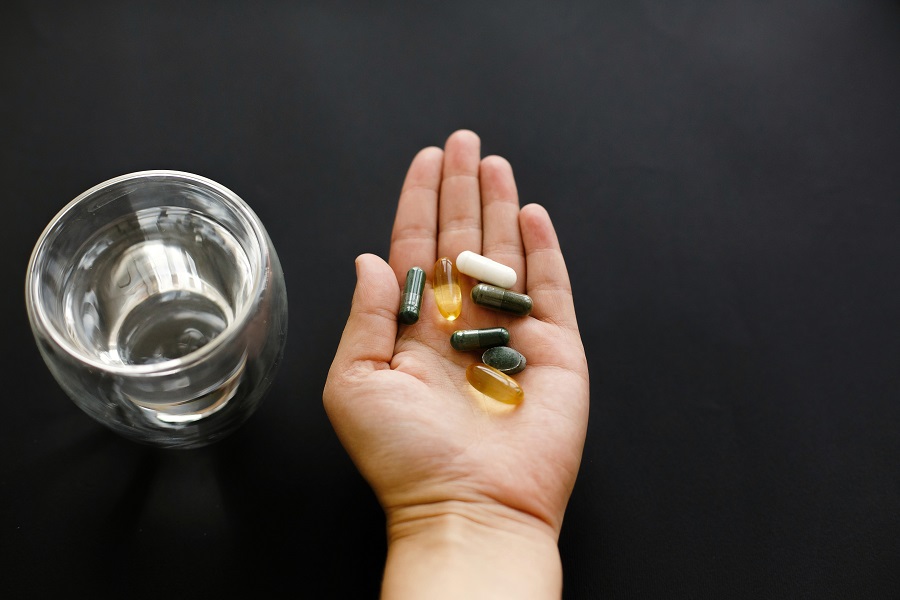Taking the time to consume key vitamins and minerals is one of the most important things you can do for your overall health and well-being. While there are several ways to obtain essential nutrients, such as eating certain foods or taking supplements, it’s equally important to identify which ones you need to nourish your body properly. This article will take an in-depth look at which vitamins and minerals are essential for healthy living, how they help keep your body functioning optimally, and their potential sources so that you can start making informed decisions about what should go into keeping yourself strong.
Contents
The Importance Of Vitamins & Minerals
Vitamins and minerals are essential nutrients that can help keep you healthy and functioning at your best when added to the diet. Vitamins and minerals are thought to play a major role in growth, development, and metabolism while also boosting immunity, preventing nutrient deficiencies, and helping maintain optimum health. Deficiencies of certain vitamins or minerals can have various effects on the body – from causing muscle weakness and hair loss to impairing cognitive function. Eating foods rich in these essential nutrients is essential for overall well-being.
Vitamins and minerals are integral to a balanced lifestyle as they are in many food sources. Not only should you be mindful of what you add to your diet, but you should also select foods with maximum nutrient value so that your body receives all that is needed for optimal health.
Vitamins
Vitamins are organic compounds that the body needs in small amounts to carry out various functions. They can be obtained from diet or supplements. The followings are the different types of vitamins and their functions in the body.
Vitamin A
Sources: Foods rich in vitamin A include carrots, sweet potatoes, pumpkins, eggs, milk, and liver.
Function: Vitamin A is essential for maintaining good vision, particularly in low-light conditions. It also helps keep skin and mucous membranes healthy, and it plays a role in producing white blood cells that help fight infections.
Deficiency and Toxicity: A deficiency of vitamin A can lead to night blindness and a weakened immune system, while an excess of vitamin A can be toxic and lead to symptoms such as dizziness, headache, and nausea.
Vitamin B Complex
Sources: Vitamin B complex can be in various foods, including meats, whole grains, nuts, eggs, dairy products, and leafy green vegetables.
Function: The individual vitamins in the B complex assist in energy production, growth and development, red blood cell formation, and nerve function.
Deficiency and Toxicity: A deficiency of vitamin B complex can lead to fatigue, anemia, depression, and other health issues. An excess of vitamin B can lead to skin rashes and other problems.
Vitamin C
Sources: Vitamin C is found in various foods, including citrus fruits, strawberries, kiwifruit, bell peppers, and leafy green vegetables.
Function: Vitamin C is needed for the formation of collagen, which is a protein that helps to keep skin, bones, and other tissues healthy. It also helps to absorb iron from plant-based foods and to support the immune system.
Deficiency and Toxicity: A deficiency of vitamin C can lead to scurvy, while an excess of vitamin C is eliminated by the body and is not toxic.
Vitamin D
Sources: Vitamin D can be obtained from the diet, but it can also be produced by the body when the skin is exposed to sunlight. Foods rich in vitamin D include fatty fish, eggs, and fortified dairy products.
Function: Vitamin D is needed to absorb calcium and phosphorus, essential for forming and maintaining strong bones and teeth. It also helps to support the immune system and to maintain healthy skin.
Deficiency and Toxicity: A deficiency of vitamin D can lead to weak bones and osteoporosis, while an excess of vitamin D can be toxic and lead to symptoms such as nausea, headache, and fatigue.
Vitamin E
Sources: Vitamin E is found in a variety of foods, including vegetable oils, nuts, seeds, and leafy green vegetables.
Function: Vitamin E is an antioxidant that helps to protect cells from damage. It also helps to maintain healthy skin and to support the immune system.
Deficiency and Toxicity: A deficiency of vitamin E is rare, but it can lead to problems with nerve function and muscle weakness. An excess of vitamin E can be toxic and lead to symptoms such as nausea, diarrhea, and fatigue.
Minerals
Minerals are essential nutrients that the body needs to carry out various functions. They can be obtained from diet or supplements. The followings are the different types of minerals and their functions in the body.
Calcium
Sources: Calcium is found in various foods, including dairy products, leafy green vegetables, and fortified foods.
Function: Calcium is needed for forming and maintaining strong bones and teeth and for proper muscle and nerve function. It also helps with blood clotting and regulating heart rate and blood pressure.
Deficiency and Toxicity: A deficiency of calcium can lead to osteoporosis and weak bones, while an excess of calcium can lead to kidney stones and other health problems.
Iron

Sources: Iron is in a variety of foods, including red meat, poultry, fish, and fortified cereals.
Function: Iron is needed to produce hemoglobin, a protein in red blood cells that carries oxygen to the body’s tissues. It also helps to support the immune system and to maintain energy levels.
Deficiency and Toxicity: An iron deficiency can lead to anemia, while an excess of iron can be toxic and lead to symptoms such as abdominal pain and fatigue.
Magnesium
Sources: Magnesium is found in various foods, including nuts, leafy green vegetables, and whole grains.
Function: Magnesium is needed for proper muscle and nerve function, as well as for the formation of strong bones and teeth. It also helps regulate heart rate and blood pressure, which are needed to produce energy in the body.
Deficiency and Toxicity: A magnesium deficiency can lead to muscle cramps, fatigue, and weakness, while an excess of magnesium can lead to symptoms such as nausea and diarrhea.
Potassium
Sources: Potassium is found in various foods, including bananas, oranges, potatoes, and leafy green vegetables.
Function: Potassium is needed for proper muscle and nerve function and for regulating heart rate and blood pressure. It also helps to maintain proper fluid balance in the body.
Deficiency and Toxicity: A potassium deficiency can lead to muscle weakness and cramps, while an excess of potassium can lead to heart palpitations and other health problems.
Zinc
Sources: Zinc is in various foods, including meat, poultry, shellfish, and whole grains.
Function: Zinc is needed for proper immune function, as well as for the production of DNA and RNA. It also helps with wound healing and the sense of taste and smell.
Deficiency and Toxicity: A zinc deficiency can lead to growth problems, a weakened immune system, and problems with taste and smell, while an excess of zinc can lead to nausea and other health problems.
These Vitamins & Minerals Are Essential For A Healthy Body!
In conclusion, vitamins and minerals are essential nutrients needed for the body’s proper function. They can be obtained from diet or supplements, and it is vital to ensure that you get enough of each nutrient to maintain good health. By eating a balanced diet that includes a variety of foods, you can ensure that you are getting the vitamins and minerals your body needs to function properly.












